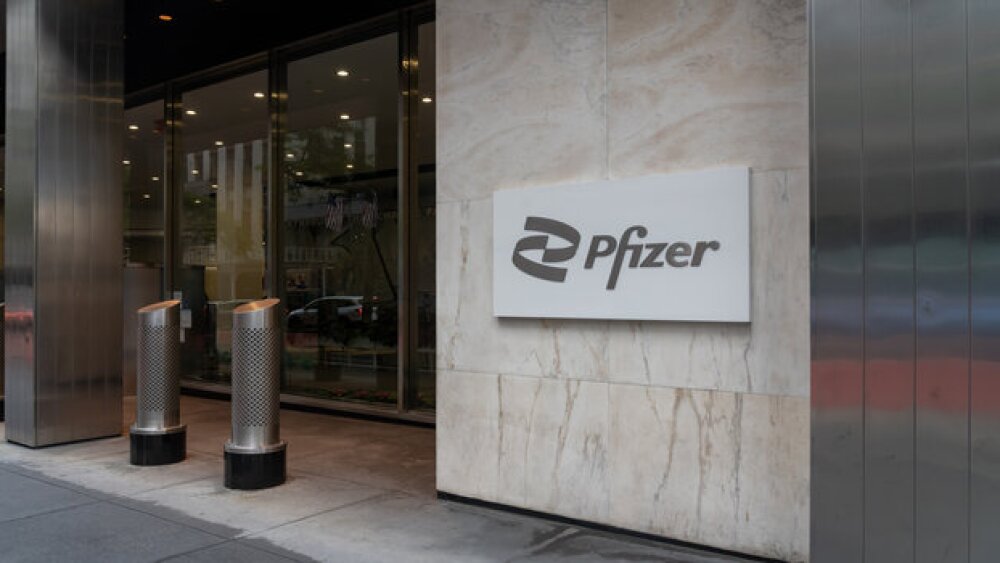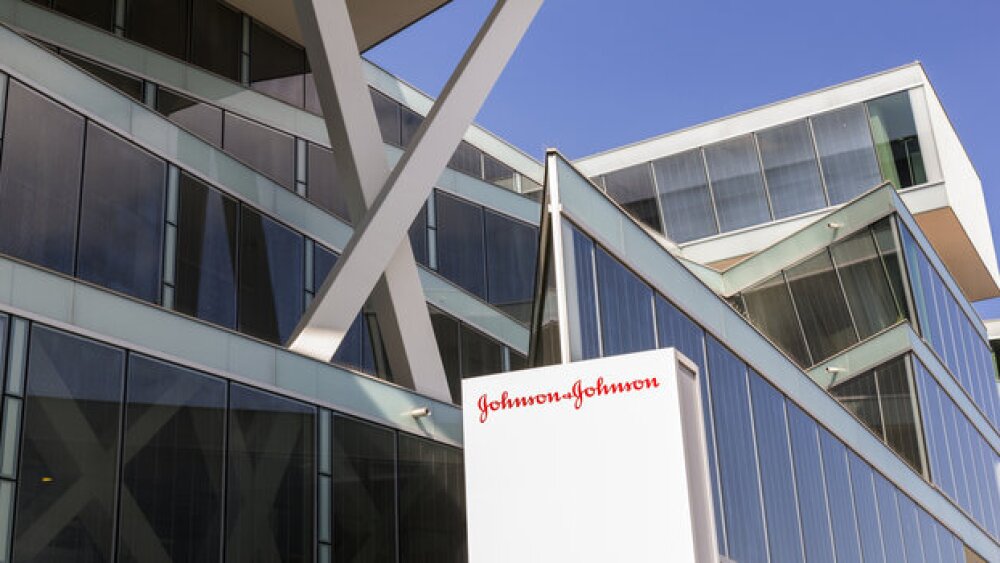While Pfizer’s oral GLP-1 candidate met its primary endpoint in a Phase IIb obesity trial, twice-daily dosing of danuglipron resulted in high rates of adverse events including nausea, vomiting and diarrhea.
Pictured: Sign at Pfizer’s headquarters in New York/iStock, JHVEPhoto
Pfizer on Friday said it is scrapping an investigational twice-daily oral Glucagon-like peptide-1 receptor agonist candidate after topline data from a Phase IIb trial of obese patients without type 2 diabetes showed high rates of adverse events. While the trial did reach the primary endpoint of a statistically significant change in body weight, there were high rates of adverse events.
According to Pfizer, the adverse events in the obesity trial for the twice-daily dosing of GLP-1 danuglipron were mild and included gastrointestinal symptoms that were “consistent with the mechanism” of the candidate. However, the company noted high rates of these side effects. Up to 73% of patients experienced nausea, while up to 47% had vomiting and up to 25% experienced diarrhea.
Discontinuation rates for the trial were over 50% across all dosage forms, compared to 40% discontinuation in the placebo group.
The twice-daily danuglipron formulation “will not advance into Phase III studies,” Pfizer said in Friday’s announcement. The company added that that the future development of the drug will now focus on a once-daily form, with data coming in the first half of 2024.
“We believe an improved once-daily formulation of danuglipron could play an important role in the obesity treatment paradigm, and we will focus our efforts on gathering the data to understand its potential profile. Results from ongoing and future studies of the once-daily danuglipron modified release formulation will inform a potential path forward to improve the tolerability profile and optimize both study design and execution,” Mikael Dolsten, Pfizer CSO and president of research and development, said in a statement.
In the Phase IIb trial of the twice-daily formulation, the mean reduction in body weight ranged from -6.9% to -11.7% compared to an increase of 1.4% for the placebo at 32 weeks. Pfizer also said that the placebo-adjusted reduction in mean body weight had ranged from -5% to -9.5% at 26 weeks and -8% to -13% at 32 weeks.
The danuglipron setback is not the first obstacle that Pfizer has encountered in GLP-1 clinical trials. In June 2023, the company announced it halted further clinical development on an investigational GLP-1 receptor agonist lotiglipron. This was due to heightened concentrations of liver transaminases found in patients.
Other big pharma companies are seeking to jump into the GLP-1 space, with AstraZeneca inking a potential $2 billion licensing agreement with China-based Eccogene for its candidate. While AstraZeneca lags far behind its Novo Nordisk and Lilly competitors in the weight loss space, AstraZeneca contends that Eccogene’s oral molecule could offer viable alternatives to the current injectable therapies from those two companies.
Among the most common side effects of Novo’s Wegovy and Lilly’s Zepbound injections are nausea, diarrhea, abdominal pain, vomiting and constipation.
Eccogene’s ECC5004 is a “small molecule that has very high absorption, doesn’t stay in the stomach for too long and therefore generates less nausea side effects in patients,” according to AstraZeneca CEO Pascal Soriot.
Tyler Patchen is a staff writer at BioSpace. You can reach him at tyler.patchen@biospace.com. Follow him on LinkedIn.






